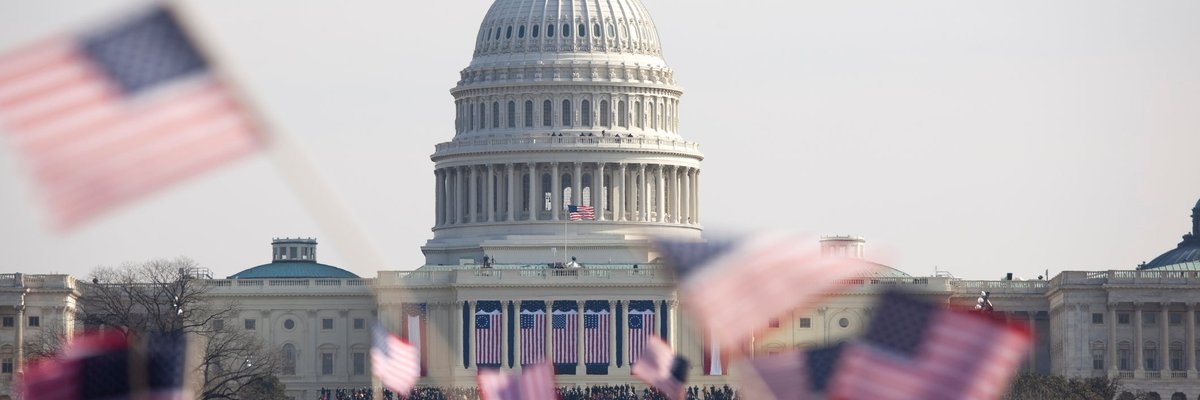Elizabeth Warren Calls on Treasury Secretary to Take Urgent Action on Crypto
Senator Warren highlights what she sees as the wide-reaching dangers of cryptocurrencies.
Senator Elizabeth Warren is determined to keep stricter cryptocurrency controls on the political agenda. This week she wrote to Treasury Secretary Janet Yellen to urge immediate action.
The letter comes just weeks after the senator asked Securities and Exchange Commission (SEC) chairman Gary Gensler if the SEC had enough authority to regulate cryptocurrency exchanges.
The senator says she's become "increasingly concerned about the dangers cryptocurrencies pose to investors, consumers, and the environment in the absence of sufficient regulation in the United States."
Moreover, she believes that any delay in tackling these dangers could exacerbate the problem. "The longer that the United States waits to adapt the proper regulatory regime for these assets, the more likely they will become so intertwined in our financial system that there could be potentially serious consequences if this market comes under stress," the letter said.
Five crypto issues that worry Elizabeth Warren
Warren thinks cryptocurrencies' impact could "ripple through nearly every corner of the financial system." Here are some of her specific areas of concern:
- Unregulated stablecoins. Stablecoins have come under fire from all directions recently. The price of these cryptocurrencies is pegged to a less volatile asset like gold or U.S. dollars. The government wants to ensure stablecoins are backed by adequate cash reserves, and that they don't turn into unregulated banking services.
- Cyberattacks and ransomware. Warren highlighted cryptocurrencies' potential to incentivize malicious activity, since they provide an easy way for criminals to receive untraceable payments. For example, the FBI reports that the cost of ransomware attacks grew by more than 200% between 2019 and 2020.
- Risk to banks. Warren argues that the high volatility of cryptocurrencies increases the operational risks for banks, especially if cryptocurrency companies aren't held to the same standards as traditional banks.
- Lack of transparency in hedge fund and institutional crypto investment. Warren cited a recent survey that showed hedge funds expect to have a 10.6% exposure to cryptocurrency by 2026. Since these funds aren't required to report their exposure, she thinks this could become a blind spot for regulators.
- Anonymous DeFi services. Decentralized Finance (DeFi) takes the middleman out of many traditional banking services, allowing customers to lend or borrow money without an intermediary. One issue is that some of these services are anonymous, so if you lost money with them, it isn't clear how you'd get it back.
The senator thinks significant problems could fall through the cracks, because there's no single body responsible for controlling crypto services. She suggests that Yellen, who is Chair of the Financial Stability Oversight Council (FSOC), might take a leading role in developing a "comprehensive regulatory regime."
Regulation is unavoidable
Increased crypto regulation in the U.S. is almost unavoidable. Elizabeth Warren is just one of many senior figures to highlight the risks presented by the sprawling cryptocurrency industry.
There's a good chance that Congress will create some kind of overarching regulatory cryptocurrency body, and that we'll see more regulation for cryptocurrency exchanges in the near future. We can also expect authorities to crack down on stablecoins and, at least, demand that each stablecoin is sufficiently backed by traditional money. It remains to be seen how much farther U.S. regulation will go.
Yesterday, in a Senate hearing entitled "Cryptocurrencies: What are they good for?" Senator Sherrod Brown spoke out against what he labeled "shady start-ups" in the crypto industry. He said, "After a decade of experience with these technologies, it seems safe to say that the vast majority haven’t been good for anyone but their creators."
In contrast, Senator Pat Toomey argued that "we shouldn’t lose sight of the tremendous potential benefits that distributed ledger technology offers." Several other witnesses spoke of the potential innovation and real-world uses of blockchain technology.
The hearing highlights the regulatory challenge that every country faces: What's the best way to protect consumers and the economy while also fostering an environment that unlocks the potential benefits of blockchain technology?
What this means for crypto investors
Cryptocurrency investors need to pay attention to how new regulations unfold. While regulation might actually increase consumer confidence and prove beneficial to crypto in the long run, it could also push crypto prices down in the near term.
If you currently use services that exist in a legal gray area, it might make sense to plan an exit strategy. For example:
- If you use decentralized exchanges or other crypto services that aren't registered in the U.S., now's a good time to move your assets to a licensed wallet or exchange.
- If you use DeFi services, be prepared for a drop in the interest rates you earn and more controls on how those services operate. We might see DeFi companies pull out of the U.S., so work out what withdrawal fees you might pay if you move your funds in a hurry.
- Finally, crypto investors need to keep track of all their crypto transactions. The IRS is clamping down on cryptocurrency tax evasion, so it's vital to understand how to report all your transactions correctly.
Our Research Expert
We're firm believers in the Golden Rule, which is why editorial opinions are ours alone and have not been previously reviewed, approved, or endorsed by included advertisers. Motley Fool Money does not cover all offers on the market. Motley Fool Money is 100% owned and operated by The Motley Fool. Our knowledgeable team of personal finance editors and analysts are employed by The Motley Fool and held to the same set of publishing standards and editorial integrity while maintaining professional separation from the analysts and editors on other Motley Fool brands. Terms may apply to offers listed on this page.



